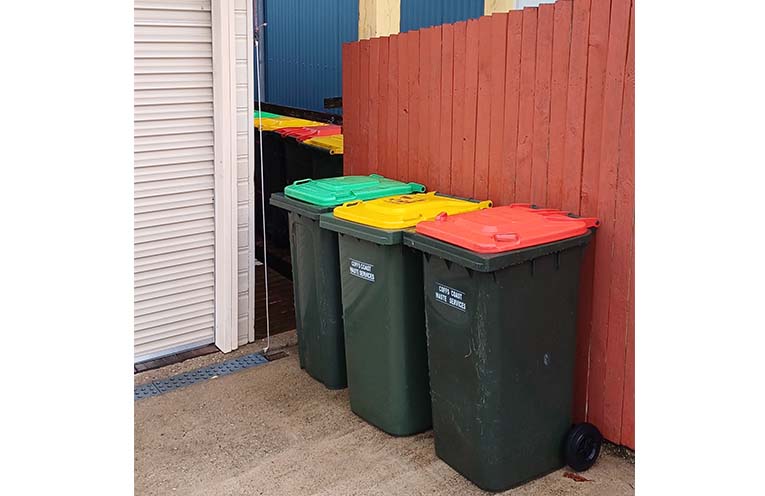
NAMBUCCA Valley Council will prepare a submission in response to a NSW Government plan to mandate the composting of food and organic components of waste collection.
The NSW Government proposes to mandate food organics (FO) collections for certain businesses (large supermarkets, the hospitality industry and institutions) from 1 July 2025 and food and garden organics (FOGO) for households from 1 July 2030.
 Advertise with News of The Area today.
Advertise with News of The Area today.It’s worth it for your business.
Message us.
Phone us – (02) 4981 8882.
Email us – media@newsofthearea.com.au
According to Nambucca Valley Council’s Manager of Development and Environment, Daniel Walsh, stakeholders are requested to make submissions regarding the proposal.
To this effect he prepared a draft submission outlining some of Council’s main concerns with the plan.
“It needs to be recognised that many Councils are not large enough to generate enough waste to viably undertake FOGO processing themselves,” he said.
“While Nambucca Valley Council has been able to provide a FOGO (green bin) and yellow bin collection service to residents and businesses, this has only been possible through collaboration with other Councils, with the processing undertaken outside of the Nambucca local government area.”
Mr Walsh further said that, as there is no obligation for councils to collaborate with neighbouring local governments, when contract periods expire, there is no certainty of future continuance of the service.
He suggested that a mandate for regional collaboration be implemented for the processing of FOGO materials, facilitated through funding from waste levy revenue.
“Alternatively, the NSW Government could get involved in the establishment of regional processing centres,” he said.
“Without any facilitation by the NSW Government, regional collaboration will continue to remain uncertain, the inefficient processing of waste will continue, and the transition to a circular economy will remain a distant aspiration,” he said.
Mr Walsh also suggested changes to the waste levy raising the problems faced by regional councils of illegal dumping, which he links to the high cost of disposal of end-of-life products such as asbestos, treated timber and lead-based painted products.
He argued that the waste levy should not be applied to such materials.
“These unnecessary costs encourage illegal dumping resulting in environmental and economic costs to the community,” he said.
Furthermore, he pointed out the ‘unfair’ economic impact of waste levies on materials required for operation of waste management facilities.
While some of these materials can be exempted from the waste levy, an exemption is not automatically granted and must be applied for on each occasion resulting in considerable cost to councils and the EPA.
The NSW Government is also intending to mandate the reporting of surplus food donations by supermarkets to food charities.
An EPA document outlining the proposal says such measures, while requiring legislative changes, will allow for investment in infrastructure such as processing facilities and transfer stations.
By Ned COWIE